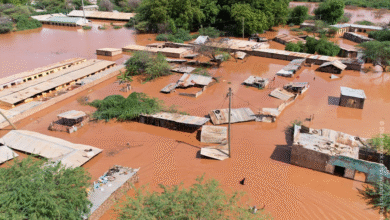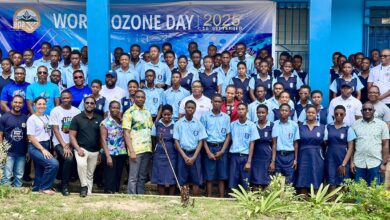Ghana Begins Process to Revise Climate Plan, Targeting Stronger Action and Green Growth

Ghana has officially begun revising its national climate plan, known as NDC 3.0, in line with its commitments under the Paris Agreement. The process aims to update the country’s climate goals for the period up to 2035 and strengthen efforts to build a greener, more resilient economy.
The launch was marked by an inception workshop in Accra that brought together government officials, civil society groups, development partners, and the private sector. The session kicked off a comprehensive review of Ghana’s 2021 Nationally Determined Contribution (NDC 2.0) to assess progress, identify policy and financing gaps, and guide the next phase of action.
Officials say the review will ensure Ghana’s new plan is evidence-based, ambitious, and aligned with both national priorities and global climate goals. It will focus on strengthening local institutions, improving technology transfer, and securing more investment to help communities adapt to changing weather patterns.
Speaking at the workshop, Dr. Abdul-Razak Saeed, Head of the Environment and Climate Cluster at UNDP Ghana, said the revision was a critical step in aligning the country’s climate ambitions with sustainable growth. “UNDP Ghana, together with the broader UN family, is working under the Climate Promise initiative to support Ghana in aligning its NDCs with the 1.5°C target and the Sustainable Development Goals. We reaffirm our commitment to producing comprehensive NDCs that are economy-wide, cover all gases, and adopt a whole-of-society approach,” he said.
The revision process, guided by outcomes from the recent Global Stocktake, will also raise Ghana’s climate ambition by scaling up actions in renewable energy, agriculture, waste management, and forest protection. The new NDC will build on the country’s progress in these areas while addressing challenges that have slowed implementation.
For ordinary Ghanaians, the exercise is expected to translate into tangible benefits—better energy access, support for farmers facing erratic rainfall, and cleaner air in cities. For the private sector, it opens new investment opportunities in green industries and infrastructure.
Experts say the new NDC will form the backbone of Ghana’s long-term climate and development strategy, helping the country balance economic growth with environmental protection. As one participant noted, “This is not just about cutting emissions—it’s about creating jobs, protecting lives, and ensuring that Ghana’s development remains sustainable.”
With the process now underway, Ghana is setting the stage for a more coordinated, inclusive, and impactful response to the climate challenge—one that promises a cleaner and more resilient future for al




